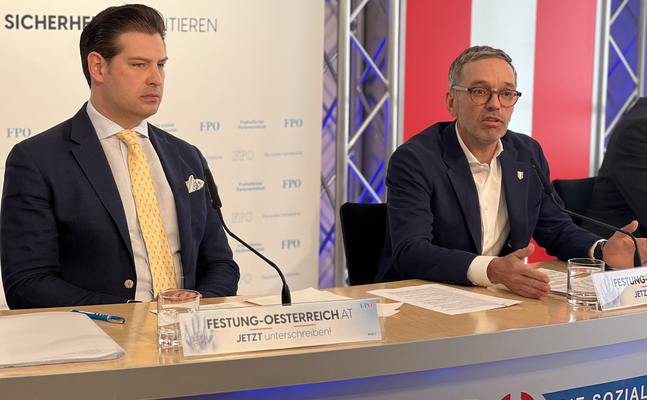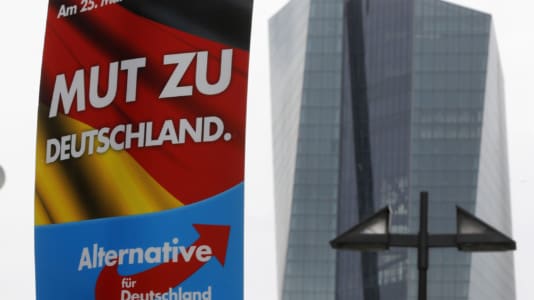The Freedom Party of Austria (FPÖ) has called on the country’s government to introduce a rent freeze until 2026 to provide real relief to those struggling with the cost-of-living crisis.
At a press conference on Thursday, federal party chairman Herbert Kickl and FPÖ building spokesman Philipp Schrangl called housing a “basic need,” and accused the governing Austrian People’s Party (ÖVP) of siding with “real estate magnates” who are hiking prices at a time when ordinary people can least afford it.
The pair lamented that “housing is becoming an unaffordable luxury for ever larger sections of the population,” and insisted those in power are making political decisions “against the interests of the population.”
Under the proposal put forward by the FPÖ, standard residential rents would be frozen until 2026, followed by a legal limit on rent increases fixed at 2 percent a year.
[pp id=64717]
The party cited data from Statistics Austria that reveal the precarious nature of the Austrian housing market. More than 40 percent of households with one child are expected to have problems paying their rent in the next three months, while 37 percent of all renters in the capital of Vienna are expected to be in the same position.
“The next increase in category rents is coming soon. In the last 18 months we have experienced an overall increase of 24 percent in this area. And here we are talking about 230,000 apartments,” Kickl told the press.
State intervention in the housing market and proposed rent controls, a typically economically left-wing policy, could attract more self-described socialist voters to the party, which is often labeled right-wing or conservative by the liberal mainstream.
[pp id=64585]
Kickl cited several socialist governments, including those of Spain, Portugal and Scotland, that have recently implemented limits on rent increases and criticized the Austrian government for not following suit and “leaving tenants out in the rain.”
“We Liberals show that there is another way,” said FPÖ building spokesman Philipp Schrangl. “There needs to be a genuine balance between the legitimate interests of tenants and landlords. So far, all the burdens of the inflation crisis have actually been passed on to the residents; that has to end,” he added.
Kickl assured the Austrian electorate that his party had “the right recipe for Austrians in terms of inflation overall and also in the area of housing” as he sought to further increase his party’s popularity among Austrian voters.
“With the FPÖ at the head of a federal government and with a liberal People’s Chancellor, this ÖVP-determined policy against the interests of the local population comes to an end. I can promise that at this point!” the party chairman added.
[pp id=63554]
Since the beginning of the year, the FPÖ has surged in the polls, frequently being considered the top party in the country for the first time in seven years.
The party has been running on an anti-mass migration, anti-Russian sanctions ticket, which has been popular with the Austrian people and seen the party perform better than expected in several regional elections in the past year.
The country’s next national parliamentary elections are expected to take place in the autumn of 2024.






